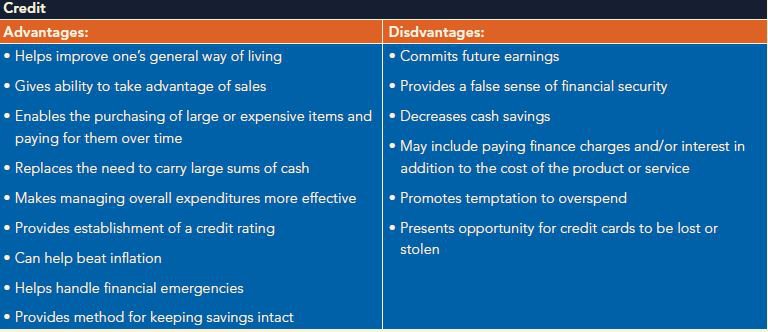The Ultimate Guide to Comprehending Lending Institution

Credit scores unions stand as special financial entities, rooted in principles of shared support and member-driven operations. As we browse with the ins and outs of credit history unions, an insightful trip waits for to shed light on these member-focused institutions and just how they differ from conventional banks.
What Are Lending Institution?
Lending institution are member-owned banks that offer a variety of banking solutions to their members. Unlike standard financial institutions, cooperative credit union operate as not-for-profit companies, implying their main emphasis is on serving their participants instead of taking full advantage of profits. Members of a cooperative credit union usually share a typical bond, such as helping the same employer, coming from the same neighborhood, or belonging to the very same company.
Among the vital advantages of cooperative credit union is that they commonly use greater rate of interest on savings accounts and lower rate of interest prices on financings compared to banks. Federal Credit Union. This is because lending institution are structured to benefit their participants straight, allowing them to hand down their profits in the type of far better rates and less charges. In addition, debt unions are known for their customized client service, as they prioritize building connections with their members to understand their unique financial needs and objectives
History and Development of Lending Institution
The origins of member-owned financial cooperatives, recognized today as cooperative credit union, trace back to a time when areas sought choices to standard banking organizations. The concept of credit unions come from the 19th century in Europe, with Friedrich Wilhelm Raiffeisen frequently attributed as the pioneer of the participating banking activity. Raiffeisen started the initial recognized cooperative credit union in Germany in the mid-1800s, highlighting area support and self-help principles.
The advancement of credit report unions proceeded in North America, where Alphonse Desjardins developed the first lending institution in Canada in 1900. Shortly after, in 1909, the very first united state cooperative credit union was created in New Hampshire by a group of Franco-American immigrants. These very early credit scores unions run on the basic concepts of shared support, autonomous control, and participant ownership.
With time, debt unions have expanded in popularity worldwide due to their not-for-profit framework, concentrate on offering members, and offering competitive economic items and solutions. Today, cooperative credit union play an important duty in the financial market, providing community-oriented and available financial alternatives for individuals and services alike.

Subscription and Qualification Standards
Subscription at a debt union is typically restricted to individuals satisfying certain eligibility criteria based on the institution's starting concepts and regulatory demands. Some credit score unions might just offer people that work or live in a particular area, while others might be customized to staff members of a specific business find out here or members of a specific view association.
Furthermore, lending institution are structured as not-for-profit companies, suggesting that their primary goal is to serve their members rather than produce revenues for investors. This emphasis on participant solution usually converts right into even more personalized attention, lower fees, and competitive rate of interest rates on loans and savings accounts. By fulfilling the qualification standards and becoming a member of a cooperative credit union, individuals can access a variety of financial product or services customized to their certain demands.
Solutions and Products Used
One of the crucial elements that establishes credit unions apart is the diverse variety of financial solutions and products they offer to their participants. Credit history unions commonly provide conventional banking services such as cost savings and inspecting accounts, loans, and credit history cards.
Additionally, credit rating unions typically supply hassle-free online and mobile banking choices for participants to conveniently handle their finances. They might use benefits such as shared branching, allowing members to investigate this site access their accounts at other credit rating unions across the country. Some credit scores unions likewise give insurance coverage items like life, automobile, and home insurance to assist members protect their possessions and liked ones.

Advantages of Financial With Cooperative Credit Union
When thinking about economic institutions, exploring the advantages of banking with credit scores unions discloses one-of-a-kind advantages for members seeking customized service and affordable rates. Unlike large financial institutions, credit score unions are member-owned and prioritize structure strong partnerships with their members. In general, financial with a credit report union can supply a much more individualized, cost-efficient, and member-centric economic experience.
Conclusion
In conclusion, lending institution attract attention as member-owned monetary institutions that prioritize serving their members over taking full advantage of profits. With origins dating back to 19th century Europe, debt unions adhere to principles of mutual support and member ownership. They provide a series of monetary product and services, consisting of conventional banking services, financial investment options, and affordable rate of interest rates. Membership eligibility requirements specify and reflect a community-oriented method, providing customized customer support and a member-centric financial experience.
Debt unions are member-owned economic institutions that provide a range of banking services to their members. The idea of credit scores unions originated in the 19th century in Europe, with Friedrich Wilhelm Raiffeisen commonly attributed as the pioneer of the participating financial activity.The evolution of credit report unions proceeded in North America, where Alphonse Desjardins established the first credit history union in Canada in 1900. Credit score unions typically supply conventional banking services such as financial savings and checking accounts, finances, and credit cards.When considering financial institutions, discovering the benefits of banking with credit unions exposes distinct advantages for members looking for individualized service and affordable rates.